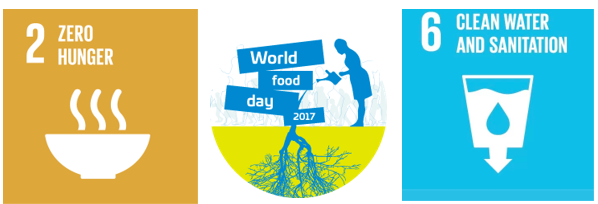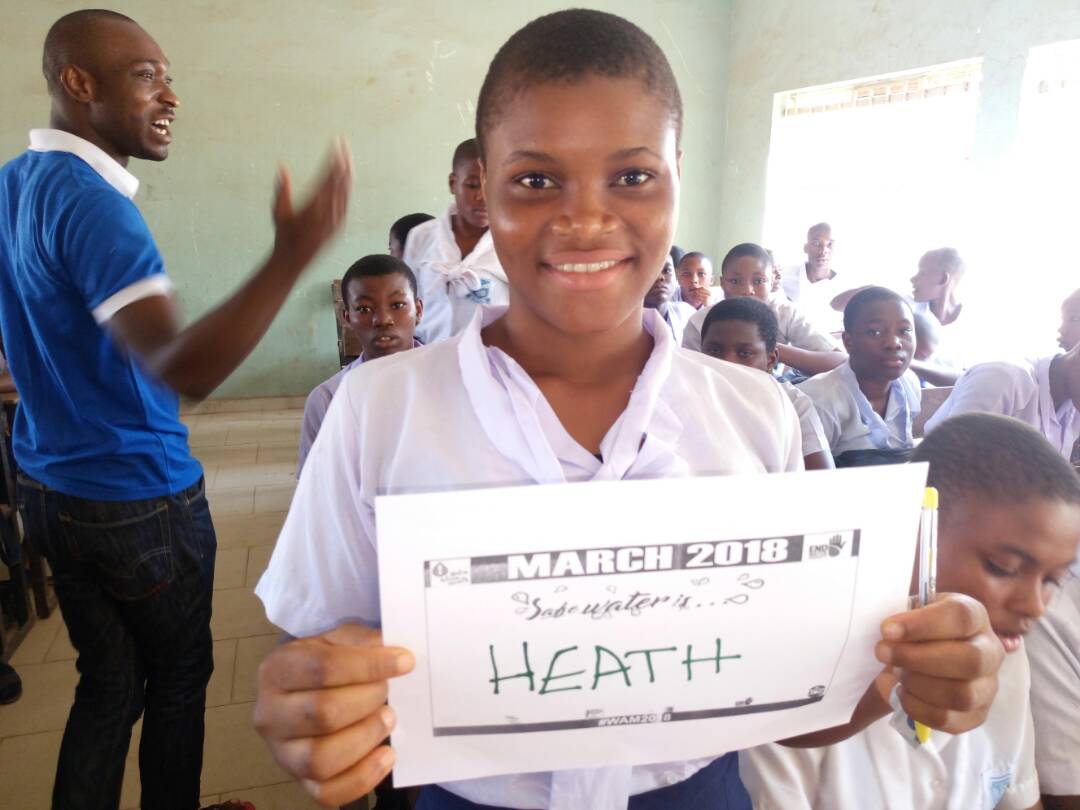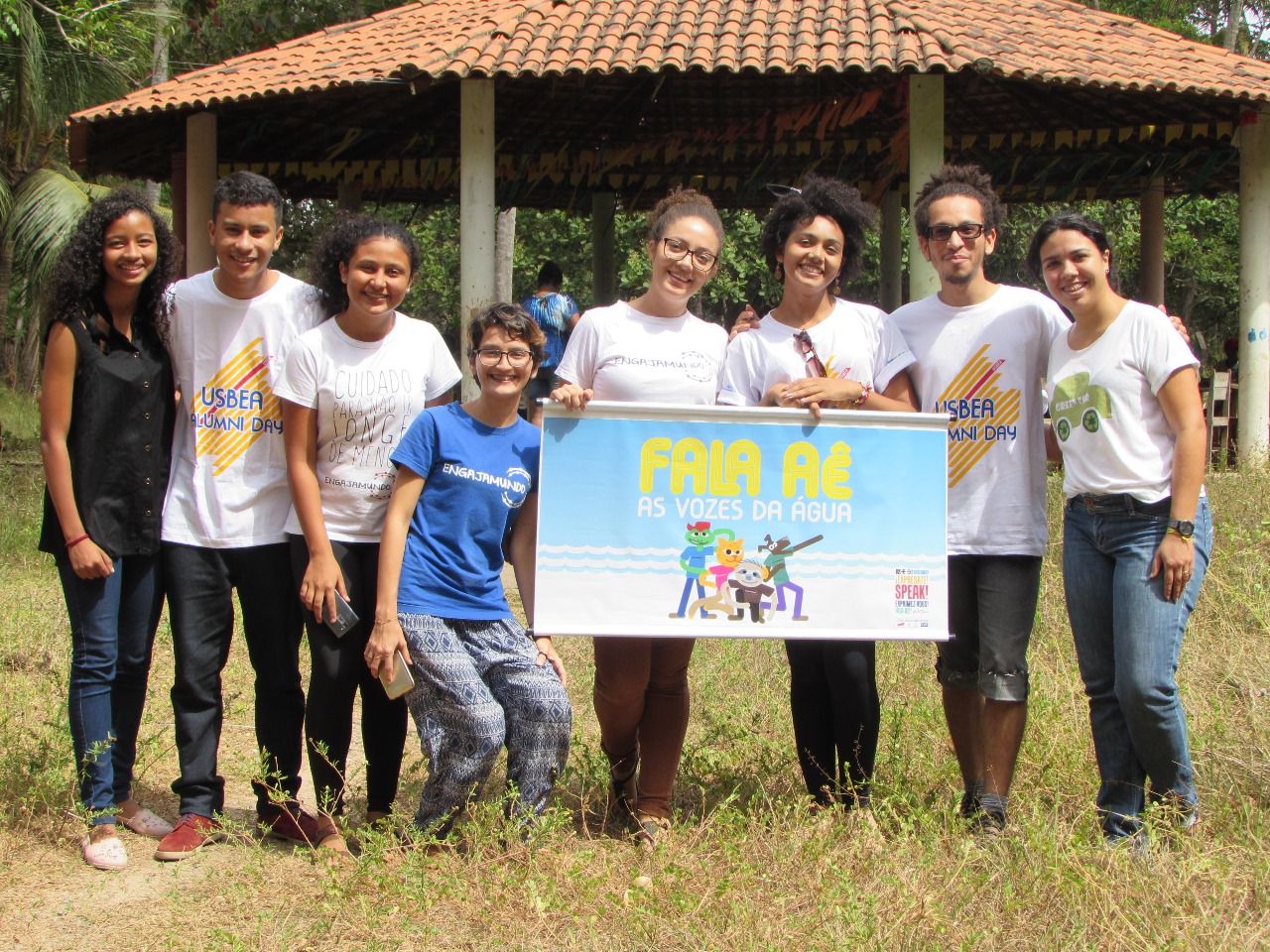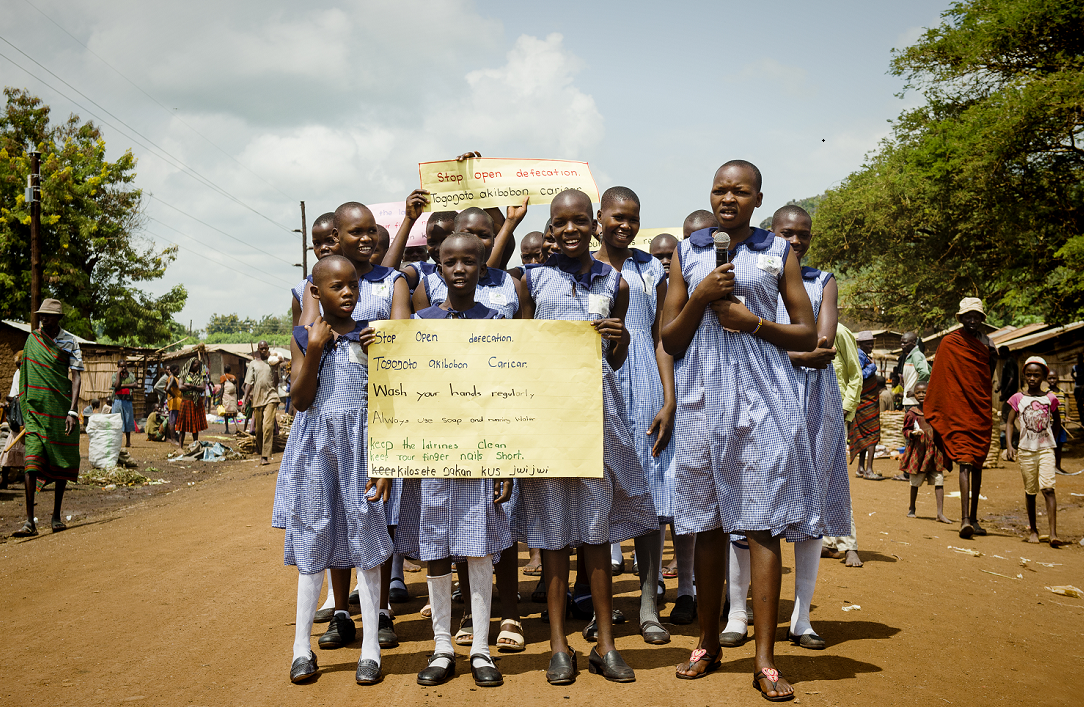Within the development sector, we talk about reaching the Sustainable Development Goals (SDGs) by 2030 on a daily basis. What we often forget is that reaching these goals provides an equal, cleaner and more sustainable world for future generations. It is noticeable that youth groups and activists are extremely passionate and enthusiastic about reaching the SDGs and are regularly finding innovative and creative ways to reach these goals. However, one of the biggest challenges they face is the lack of space provided to them to advocate for what they believe in.
That is why this year’s International Youth Day theme (safe spaces for youth) is extremely fitting, which includes the following:
- “Safe spaces such as civic spaces enable youth to engage in governance issues.
- Public spaces afford youth the opportunity to participate in sports and other leisure activities in the community.
- Digital spaces help youth interact virtually across borders with everyone.
- Physical spaces can help accommodate the needs of diverse youth especially those vulnerable to marginalisation or violence.” – United Nations
Each year, End Water Poverty (EWP) and its members and partners aim to find new ways to engage youth groups and provide them with a platform to speak about their work and the issues they are passionate about. As part of this goal, for International Youth Day, we have partnered with several organisations to publish this joint blog. This includes an interview with one of the founders of the Pink Protest (Grace Campbell) and contributions from Christian Fellowship and Care Foundation in Nigeria, Restless Development and Engajamundo as well as WaterAid UK. Each organisation’s contribution discusses various issues and the importance of youth participation within the water, sanitation and hygiene (WASH) sector.
A commitment from and for all countries, period.

When people think of activists, they tend to imagine radical feminists, violent protests and extreme forms of action. But we are all activists. We recycle, we promote gender neutral toilets and talk about climate change. It is the small acts we take towards making our world a better and more sustainable place that make us all activists.
Since its inception, the Pink Protest has been challenging the stereotype of activism and has provided an accessible and fun space for young activists.
“You don’t have to live the life of an activism to be an activist.” – Grace Campbell
The lack of space provided to youth activists – especially women and girls – to advocate for issues such as period poverty was part of the reason why Grace Campbell, Scarlett Curtis and Alice Skinner founded the Pink Protest. Through their work, they reach youth activists – particularly girls in secondary education – as they demonstrate more passion and enthusiasm than any other age groups. The Pink Protest is therefore encouraging, supporting and influencing future generations within the UK and beyond.
The work of this youth-led organisation is strongly linked to the SDGs. Period poverty can negatively impact progress towards many of the goals including goals 4 (quality education) and 5 (gender equality). Lack of access to safely managed water and sanitation along with menstrual hygiene products prevent girls from receiving an education and building a bright future. It’s a basic human right that requires simple steps, which lead to noticeable positive impacts.
“Privileged men won’t think that 1 in 10 girls in the UK experience period poverty. Politicians don’t like to say the word ‘period’. It’s a taboo. Until that ends, we’re never going to see huge changes.” – Grace Campbell
During our interview with Grace Campbell, we asked about the challenges she faces while advocating for menstrual hygiene management within the UK. She stated how we often do not notice underlying issues in developed countries such as the UK. If we are to reach to the SDGs, all governments should be held accountable to their promises and ensure that all targets are met in every country.
A stereotype for menstrual hygiene management advocates tends to be only women as this is seen as a women’s issue. That couldn’t be further from the truth! This is an issue that impacts women, men and economies. With that said, the Pink Protest is always trying to engage men in the discussion and encourage them to take action.
To conclude, we asked Grace Campbell to share one message with all youth activists:
“Be persistent, because nothing happens straight away. Nothing happens quickly in this world. Pick yourself up if you get rejected. find networks and communities of people striving to make similar change and do it together.”
Building a More Water-Aware New Generation!

The youth of today are the leaders of tomorrow. This is all the more reason to engage young people to be a part of achieving increased access to water and sanitation for all. The youth are eager to learn and therefore should be given the space, opportunity and freedom to put their knowledge into practice.
True to its vision to empower young people, Christian Fellowship and Care Foundation offers activities to inspire youth, provides tools to implement their ideas, and a platform to network and have their voices heard. To us, enabling young people to take action is vital for sustaining their motivation and commitment.
Effective dialogue on water and development issues begins with bringing diverse voices to the table. Yet, voices of young people are often missing within communities and the sector. By highlighting this group as a valuable stakeholder, we hope to better demonstrate what can be achieved when everyone’s voices are heard. It also helps to create networks, through which information is exchanged, advocacy efforts strengthened and involvement is stimulated.
Indeed, young people represent an important entry point for policy change and community intervention and their roles are necessary to establish mutual beneficial partnerships.
In March 2018, we planned activities for the 2018 Water Action Month (WAM) campaign through our school outreach programme, which aims to give young people a greater role to unleash their potentials to meet the SDGs.
One of the main focuses of engaging today’s youth is to prepare them and help recognise their role in innovating and creating new ways of addressing challenges in a constantly changing environment. Through this, we can acknowledge the contribution and benefits of young people in the development agenda.
Despite our successes during WAM 2018, there were also pockets of challenges, including a lack of funding, civic space, non-inclusion of young people during policy formulation, cultural interference, and lack of media support.
Young people are an important part of change in the world. They are committed, that is why it is important to engage them to come together, participate in decision-making and freely express themselves in order to hold governments accountable to achieving the SDGs.
How bringing youth to the core of water discussion can be a game-changer for sustainable development in Brazil

In a continental size country like Brazil, the scale of the social and environmental problems we face is huge. It is a country where over 5 million people lack access to basic water (JMP Data 2015) and 120 million live in areas in which sewage treatment is inexistent. The deep inequality characteristic of our society reverberates on how WASH services are accessed, if they are accessed at all.
As part of a youth-led organisation situated in Brazil, dealing with young people’s involvement in discussions around water issues was more than an urgent matter. It was part of our duty. We know for a fact that even if lacking the knowledge or capacity to get involved in water policy discussions, young people wish to understand the context they are immersed into and, most of all, strive to be part of the solution of their realities.
Taking these elements into account, we at Engajamundo decided to launch the FALA AÊ! As Vozes da Água (SPEAK UP! The Voices of Water) Campaign having a common ground based on two fundamental points:
- Young people must understand water as a fundamental human right.
- Our most pressing water issues cannot be tackled if Brazilian youth do not see themselves as active citizens ready to reclaim their rights as empowered advocates in local and national water governance systems.
Since 2017, we were able to organise and coordinate trainings, workshops and activism actions in ten different Brazilian cities, raising awareness on issues, offering young people a platform and tools to spread out their voices and take part in the discussions around water management. Right now, our challenge is to work for the implementation of local water security plans, turning them into policy instruments to ensure the distribution of quality water in a sustainable way, avoiding waste and preventing future water crisis.
The lessons drawn from these processes are many and we can confess that sometimes the challenges seem almost endless. After more than one year working closely with young people from the five regions of Brazil who represent different social, economic and ethnic realities, we have learned to cling to the belief that we are a driving force for sustainable development.
We are certainly aware of the multitude of challenges we are facing when dealing with water issues in Brazil, but we remain confident that when equipping young people with the skills, knowledge and confidence, we are on the right path to achieve the SDGs.
Just like our campaign video shows, even in a diverse and big country as Brazil, youth activists have shared concerns and struggles; and these are precisely the reasons why we need to keep demanding for public policies and decision-making spaces that take into account the needs and visions of young people.
Working with UK Youth to Create Global Change

Credit: WaterAid/Eliza Powell
International Youth Day is an opportunity to reinforce the importance of young people within the SDG agenda. At WaterAid, it is a chance to reflect upon the importance of clean water, decent toilets and good hygiene for the empowerment of young people around the world. We also recognise the energy, enthusiasm and potential young people in the UK who are leading our mission have. Whether a student in school or university, a youth group member, or someone starting out in the workplace, young people have a pivotal role to play in determining how the world will achieve the SDGs. It is vital that we are educating, empowering and equipping them with the tools to be part of the solution, as we work to make clean water and decent toilets normal for everyone, everywhere.
In September 2018, WaterAid will be launching its Youth Ambassador Programme, inviting secondary school-aged pupils across the UK to become the voice of WaterAid in their school and wider community. They will be equipped with the tools they need to educate their peers, campaign within their communities and fundraise to empower the 1 in 9 around the world who don’t have clean water close to home. It’s an opportunity to engage young people as leaders with a heart for global issues, and we can’t wait to see what creative actions they come up with.
For inspiration, they can look to our Student Ambassadors; dedicated university volunteers who represent WaterAid year-round on campuses across the UK. They have spent the last academic year making noise about the water and sanitation crisis and raising vital funds at the same time. From delivering inspiring talks to donning toilet-costumes in the Student Union, we could not do the work we do without the passion and creativity of our young supporters on the ground.
This International Youth Day, we will be reflecting upon the need to converse with young people as we work towards the achievement of Goal 6 and waiting in anticipation for the burst of creativity and excitement that our Youth Ambassadors and Student Ambassadors will bring to the table in the new academic year.
************************************
End Water Poverty is a global coalition of non-governmental and civil society organisation working towards ending the water and sanitation crisis. We work closely with organisations across all regions and provide them with support and a platform to showcase their work. During our Water Action Month 2018 campaign, we placed a focus on youth participation in WASH and we hope to continue this in upcoming campaigns.
Follow our contributors
Pink Protest
Christian Fellowship and Care Foundation
Restless Development
Engajamundo
WaterAid